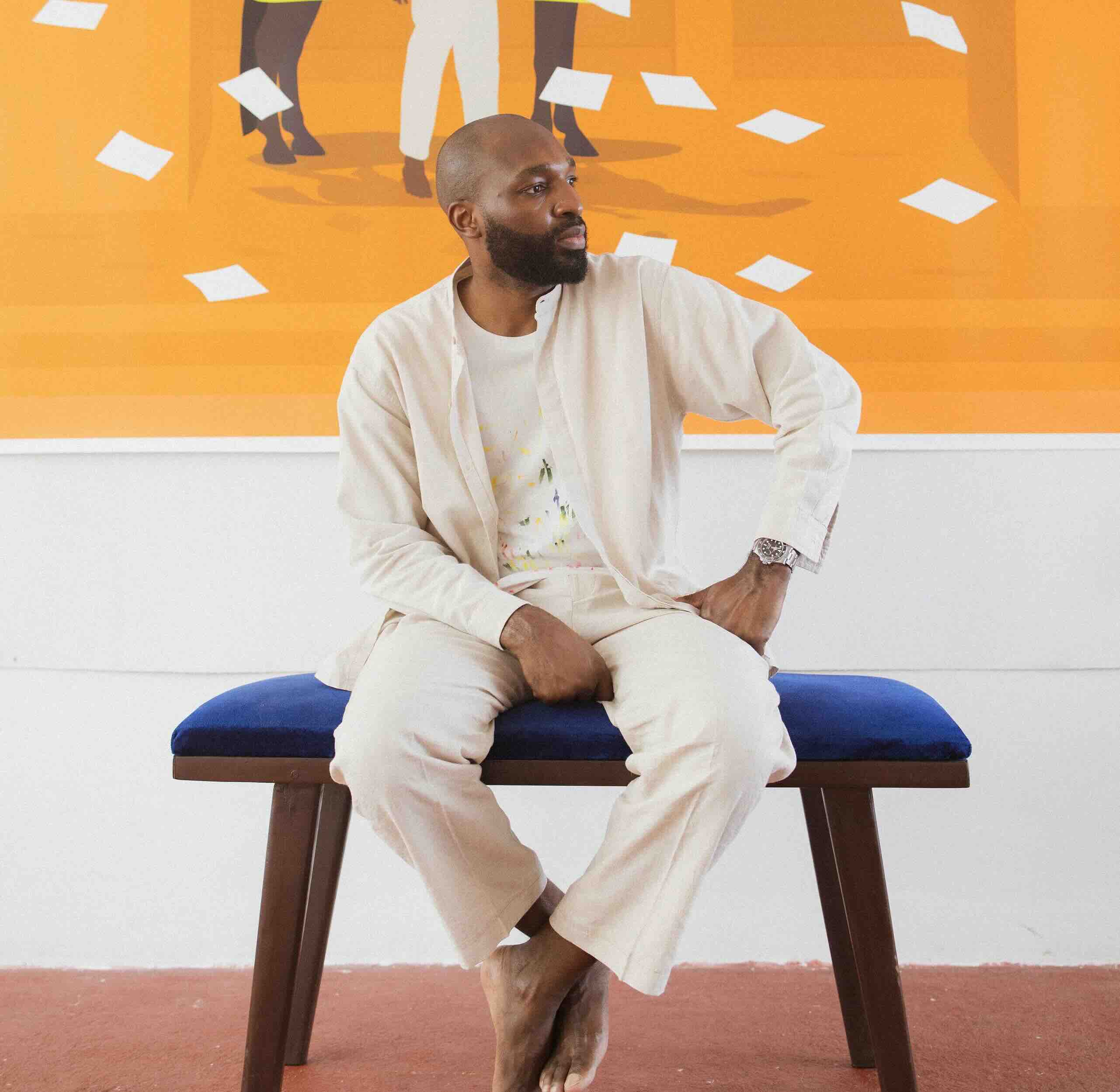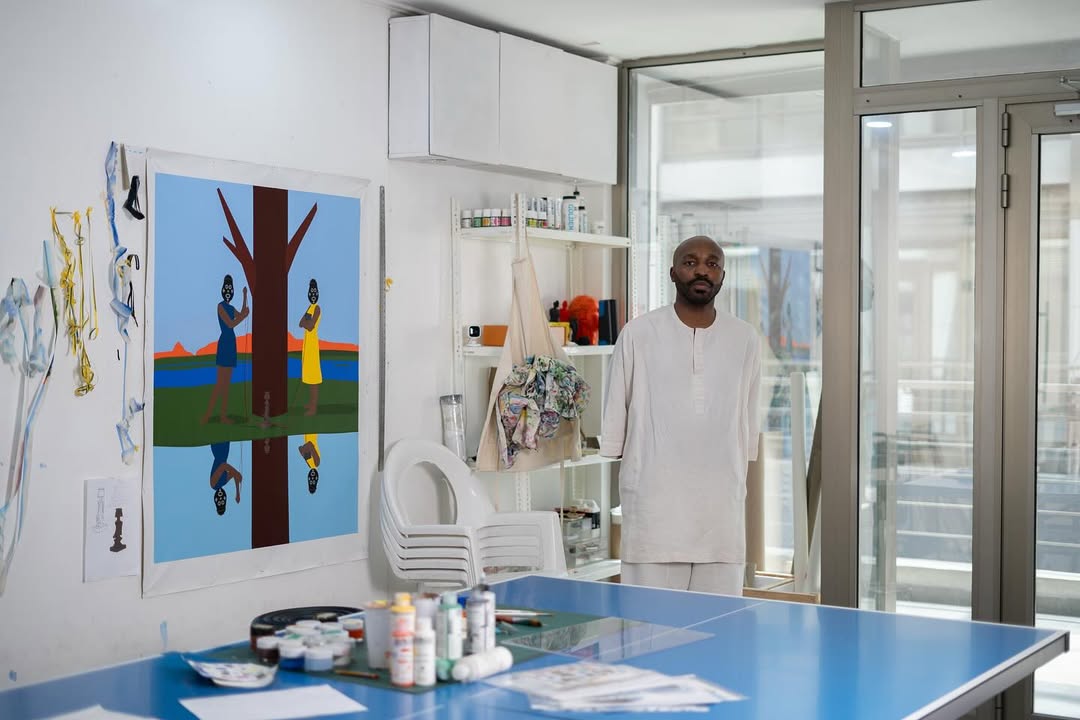
Redefining contemporary African art, African artist Dennis Osadebe is redesigning how the continent imagines its own future.
Redefining contemporary African art, African artist Dennis Osadebe is redesigning how the continent imagines its own future.
There’s a peculiar silence in Dennis Osadebe’s world, not the kind that hides behind absence, but the kind that hums with control. You can feel it in his colors, in the crisp stillness of his characters, in the way his figures never really meet your eyes. It’s like he’s saying, you don’t have to perform to be seen.
Osadebe builds worlds that feel both ancient and unborn. His art stands somewhere between bronze and pixels, where Yoruba mythology flirts with augmented reality. The result isn’t nostalgia, it’s negotiation, a conversation between what we were, what we are, and what we might be if we finally stopped explaining ourselves to the West. He calls it Neo-Africa. But beyond the label, it’s a philosophy that tradition doesn’t have to be repackaged to look futuristic. That the future itself is simply another version of home.

Every figure in his work wears a mask. Not as disguise, but as declaration. They are anonymous and universal at once, shaped by the idea that identity can exist without visibility. And maybe that’s Osadebe’s quiet rebellion: in an age where artists are content creators and creativity is a metric, he remains unbothered by the constant need to appear.
He’s not hiding; he’s choosing.
There’s something almost spiritual about that. A refusal to let algorithms dictate rhythm. While others rush to post, to trend, to “be known,” Osadebe is somewhere sculpting time, polishing silence into relevance. His rebellion isn’t loud, but it echoes long after you’ve left the room.
To look at his work is to feel Lagos differently. Not as chaos, but as code. Not as noise, but as form. The masks, the polished bodies, the voids of color, all feel like fragments of a digital dream stitched to a cultural memory. He isn’t painting for approval. He’s documenting what happens when African modernity stops waiting for permission.

It’s strange how his restraint feels radical. Because in this world, stillness is an act of defiance. Osadebe’s art reminds us that the future won’t arrive in noise, it’ll come in patience, in deliberate strokes, in heritage re-written with precision. He doesn’t scream; he constructs. He doesn’t chase meaning; he embodies it. And maybe that’s the lesson for every creative trying to make sense of this manic era: You don’t have to out-shout the world. You just have to out-think it.
Dennis Osadebe is proof that rebellion doesn’t always need fire. Sometimes, it only needs form.
Comments